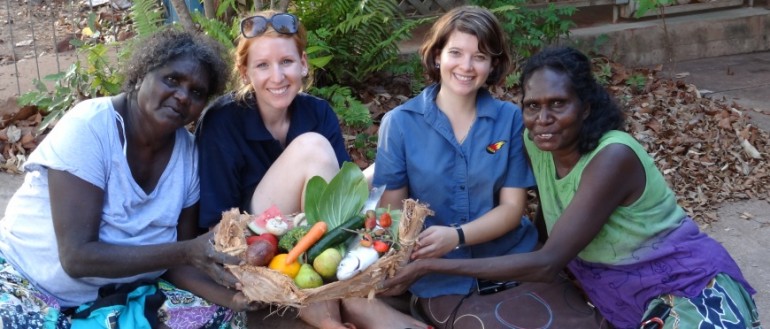A Perspective: Putting Cambodia’s youth health and wellbeing under the microscope
Dr Kate Senior is a senior research fellow with the Menzies School of Health Research in Darwin. Her research interests in the application of anthropological methods in the evaluation of health services have taken her to locations far beyond the confines of her Darwin office. Most recently, she had the opportunity to travel to Battambang, Cambodia, and shares her story.
Battambang in north western Cambodia is situated 252 kilometres from the capital Phnom Penh, a journey which takes five hours by road. The province is known for its rice production, its well preserved French colonial architecture and its rackety Bamboo Train.
It also is home to the University of Battambang, which was founded in 2008 and now provides undergraduate and postgraduate education to several thousand students. During January 2013, my family and I lived in Battambang and I became a visiting Fellow at the university.
Life in Battambang offered a unique experience for an anthropologist, I was invited to Khmer weddings, I spent evenings chatting to monks at the local pagoda about their future aspirations, I learned to shop for food at the local markets and I tried to understand the modern country within the context of its traumatic past.
But this experience involved more than participant observation. I had been set the daunting task of developing an adolescent health and wellbeing research focus for the region, and training students in qualitative research methods.
I soon found out that the health and wellbeing of young people was a popular subject. Having naively assumed that my first meeting with staff and students would be an informal chat, I was rather bemused to be led into the 600 seat capacity University Grand Hall for my initial ‘meet and greet’.
Talking to the group, with the aid of a translator, about my work with young people in Indigenous Australia was a slightly surreal experience which set the scene for the coming weeks.
Within two days I had recruited a group of student volunteers from the Faculty of Sociology and Community Development to work with me. Despite their heavy workloads, the exam period, the difficulties of working in another language, and the power cuts that lasted for three days of each week, these students appeared every morning at 8am ready for work.
Their insights into the lives and challenges faced by young people in the region were compelling. We talked about intergenerational tensions and values, the rapid changes to the lives of adolescents brought about by global influences, and their understandings of the major affronts to health and wellbeing in the region.
The issues that we discussed included the involvement of young people in gangs, the lack of employment opportunities, the threat of human trafficking, the impact of ‘foreigner culture’ on body image, and the difficulties of achieving an education.
During our time together, the students learnt and practiced in-depth interviewing, observation, effective note taking, and construction of an interview framework. They had not previously been trained in such methods, but by the end of the second week they suggested that they needed to move beyond the theory and obtain some practice in the field.
By the end of my stay in Battambang they had conducted interviews with 50 young people from the student population and gathered material that will provide a framework for the next period of research.
I returned from my relatively short stay in Cambodia fascinated by the culture of the country and impressed by the dedication of the students. I am looking forward to my planned return to Battambang in July this year.

